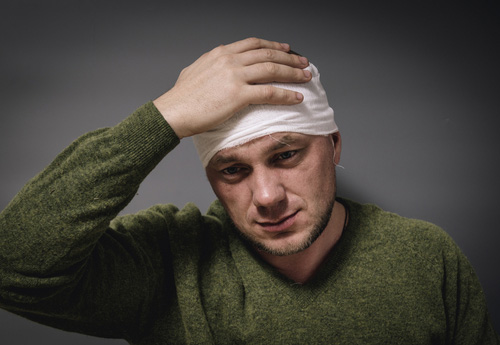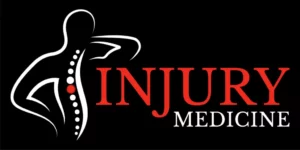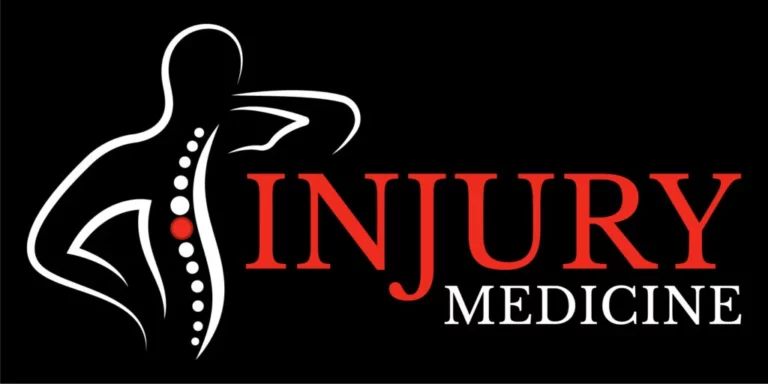A head injury can result from a blow to the head and alter the person’s physical or mental functioning. The Centers for Disease Control & Prevention (CDC) states that over 50,000 people die each year in the United States from severe head injuries.
A head injury can become life-threatening when it leads to a severe traumatic brain injury or TBI. If you or a loved one has suffered a head injury due to whatever reason, it is imperative that you seek immediate medical treatment. Injury Medicine is your trusted injury treatment center for head injuries in Spartanburg, SC.
The team of seasoned medical practitioners and physiotherapists understand the seriousness of your condition, and how it can affect your loved ones. We have experience in providing the right type of treatment methods that work for different types of head injuries and can tailor a treatment, specifically meant for you or your loved one.
Call Injury Medicine today at 864-866-PAIN for prompt head injury treatment in Spartanburg, SC.
Types of Head Injuries
Our team of expert medical practitioners in Spartanburg treats different types of head injuries and causes of headaches. Here are some of the most common types of head injuries.
Headaches
A headache is considered a primary symptom of a head injury. Although there are different types of headaches, the most common ones are:
- Tension headaches – Tension headaches are related to muscle tension, muscle spasms, and stress.
- Migraines – Migraines occur when a particular region of the brain becomes hypersensitive. It can spread to other regions of the brain like waves.
- Cervicogenic headaches – When the soft tissues at the back of the head or neck are injured, cervicogenic headaches are the result.
Traumatic Brain Injuries (TBIs)
A sudden blow to the head can result in a traumatic brain injury or TBI. These types of injuries can have temporary and permanent effects on the brain’s functionality.
Skull Fractures
A break in the cranial bone or skull is considered a skull fracture. When a force is strong enough to fracture the skull, skull fractures occur. Hitting the ground with substantial force, auto accidents, being hit by an object, or any other trauma can lead to skull fractures.
Tenderness and swelling around the impact region, facial bruising, and bleeding from the nostrils or ears are some of the common symptoms of a skull fracture.
What Is Traumatic Brain Injury or TBI?
A traumatic brain injury occurs when a sudden physical force damages the brain and affects the normal functioning of the brain. If the skull is broken due to an accident or an object hits the head violently, a traumatic brain injury can occur. A severe traumatic brain injury can result in long-term unconsciousness or a coma.
Facts About Traumatic Brain Injuries
More than 1.7 million people suffer from TBIs in the U.S. every year. It is referred to as a Silent Epidemic while 75% of the sufferers experience concussions or mild brain injuries.
A concussion is a mild form of TBI, and it doesn’t always result in unconsciousness. In fact, only 10% of concussions lead to unconsciousness.
More than 90% of TBIs result in some form of visual problem. Most TBI victims may suffer from blurred vision, light sensitivity or photophobia, headaches as a result of eye strain, difficulty reading, and loss of peripheral vision.
Traumatic brain injuries contribute to more than 30% of all injury deaths in the United States. According to the CDC, there were over 64,000 TBI-related deaths in the United States in 2020.
Common Causes of TBIs
The primary cause of a TBI is damage to the brain tissues. A sudden blow to the head can result in brain tissue damage. According to the latest statistics most traumatic brain injuries are caused by slips & falls, workplace injuries, auto accidents, sports accidents, and more.
Treatment for Traumatic Brain Injury
There are different types of treatments for traumatic brain injuries or TBIs. The treatment plan may depend on the type and extremity of the injury. Minor head injuries may not have any symptoms other than some pain in the affected area. Your healthcare provider may prescribe Tylenol (acetaminophen) to address the pain under such circumstances.
Even if you have experienced a minor head injury, you should keep an eye on your condition and make sure that it doesn’t worsen over time. A qualified healthcare provider at Injury Medicine will assess your condition and begin appropriate treatments.
Mild TBI
A mild traumatic brain injury can be treated with over-the-counter medications and complete rest. The patient should be closely monitored at home for worsening symptoms. The patient may require follow-up doctor appointments at times.
Emergency Care
Moderate to severe TBI cases may require emergency care. Emergency care will ensure the patient has enough oxygen and adequate blood supply. On the other hand, hospitalization will help prevent secondary damage due to reduced oxygen supply to the brain, bleeding, and inflammation.
Medications
- If you have experienced moderate to severe traumatic brain injuries, you are at risk of experiencing seizures. Anti-seizure medications will help prevent further damage to the brain.
- Diuretics help reduce the amount of fluids in the brain tissues.
- If you have experienced a severe TBI, your healthcare provider may recommend coma-inducing medications since the comatose brain needs less oxygen to function.
Surgery
Immediate surgery is important to prevent further damage to the brain after a moderate to severe TBI.
- Removing Hematomas – Bleeding within the brain can result in hematomas. Surgery is important to remove the clotted blood from the brain.
- Bleeding – Surgery is needed to stop bleeding in the brain.
- Skull Fractures – Surgery is the only way to repair fractures in the skull as a result of a moderate to severe TBI.
- Opening the Skull – Surgery is needed to relieve pressure from the skull by draining accumulated cerebrospinal fluid.
Rehabilitation
If you experience moderate to severe TBIs, you may require rehabilitation. You may need to relearn basic skills including walking and talking.
Symptoms of a TBI
The following are common signs of a traumatic brain injury:
- Nausea
- Vomiting
- Headaches
- Sensory issues
- Fatigue
- Drowsiness
Diagnosing Your Head Injury
Imaging tests and physical examinations are required to diagnose a head injury. The doctor will obtain a complete medical history of the patient during the examination. A neurologist will evaluate you for signs of a brain injury.
Get the Best Head Injury Treatment in Spartanburg!
When you have experienced a head injury, you need immediate medical attention to assess the condition. The experienced team at Injury Medicine is here to help you. Call Injury Medicine today at 864-866-PAIN for prompt head injury treatment in Spartanburg, SC.


